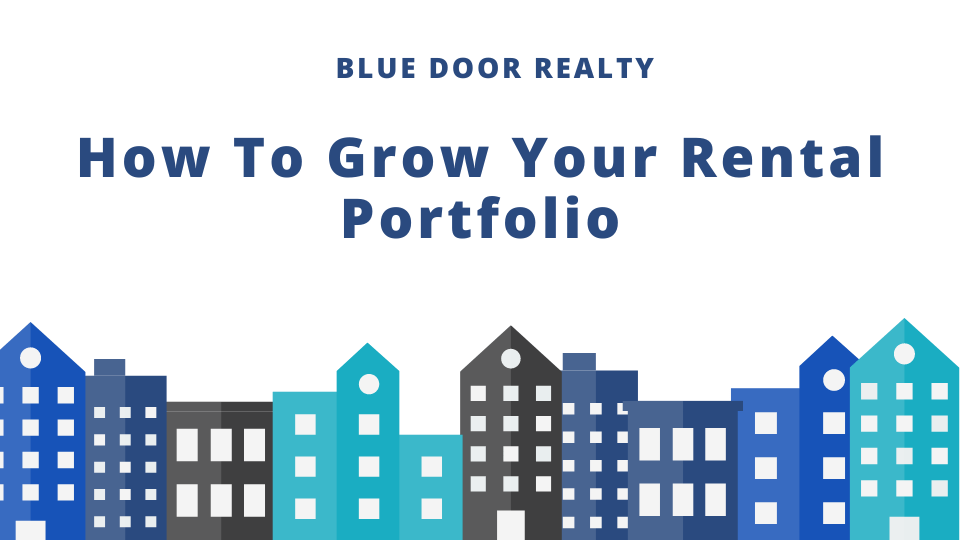While owning a rental property can help generate a source of income to optimize your earnings, you need to plan for the growth of your portfolio. This strategy will reduce your stress since you have another cash flow to depend on even when one unit is empty of renters.
Boosting your rental portfolio requires tons of research to ensure you maximize your returns on investment. Learn about the different ways to accomplish your goal of boosting your real estate investments.
Why Is It Vital to Bolster Your Property Portfolio?
Diversifying your investments is key to generating more income. To achieve this, you must choose high-quality real estate that will provide excellent returns. You must also understand real estate appreciation in-depth if you plan to grow your property income over time.
One benefit you can gain when you continue to increase your rental portfolio is economies of scale. You can further improve your property management systems to achieve business success.
Growing A Rental Portfolio
As with any other type of investment, you need to break down your goal into manageable steps to avoid overwhelm. Start by drafting a plan when investing in a property and adopt specific, measurable, achievable, relevant, and time-based (SMART) goals.

You need to determine your risk appetite to help you choose the right strategies for you. Ask yourself what you are aiming for when you are building your rental portfolio. Be specific about your financial goals so you can decide on the best strategy before buying your investment property.
Property investors should look at critical factors to consider, such as the location of the real estate, the property type, and the options for financing. Make sure to know the latest news on infrastructure development so you can capitalize on the advantages.
Be on the lookout for neighborhoods where new infrastructure is being planned or developed. Network with real estate professionals to gain updated information on what’s popular for the market and in demand.
It is also advisable to choose a mix of different rental properties rather than sticking to one type of real estate. This way, if the demand for residential rentals slows down, you can still compensate for your commercial rental spaces.
The pros of having commercial investments rather than just single-family homes are that you can attract different markets and will greatly reduce your risk when market demand shifts. It also leads to earning a solid income in the dynamic market and different economic scenarios.

To illustrate, you may have a lucrative rental dorm room near top schools but when the school year ends, a lot of students move out.
This is expected and to protect your income as a landlord, you can still earn revenue if you have another rental property, such as a vacation home to make up for the slowdown of demand in the other dorm property.
Making A Real Estate Investment Plan
To succeed in increasing your rental portfolio, you need to design a good plan. List down strategies, objectives, and financing options. Once you complete this list, you can start taking action since you can now focus on these goals to help you move in the right direction.
Setting SMART Goals
To simplify drafting a rental business plan, follow the clear-cut steps of SMART goals. You must:
- Allocate a certain budget to invest in new properties within a specified period
- Target a set number of properties each quarter
- Grow your network or team
- Build your real estate knowledge further
Penning down goals helps you monitor your progression. Researching, doing a comparison of different properties, and analyzing different real estate investments will guide you to take advantage of the best opportunities that align with your risk appetite.
Choosing An Investment Strategy
Determine your method of investment before you decide to boost your rental portfolio. There are two common types of properties, ABC investment strategy and the Real Estate Investment Trust (REIT) investments.

Different properties can be categorized using the ABC investment strategy, such as:
- Type A are high-tier properties that are maintained well
- Type B are moderately-maintained rentals with decent amenities
- Type C are properties that require upgrades
Type C properties may require plenty of effort from investors, but the potential to increase your earnings is higher. Diversifying your portfolio with a mix of property types can greatly reduce the risks you are facing and ensure a stable income whether the market is up or down.
You can also consider REITs as another strategy to build an income from extensive and sought-after properties with minimal effort. But keep in mind that you cannot utilize REITs as leverage when you buy real estate. This means that growing your rental portfolio can be gradual if you adopt this investment tactic.
Tips for Conducting Property Research
Once you have enough information about the local real estate market, you can gain a lot of advantages. An excellent way to gain more knowledge is by getting involved with events around your community. Networking helps you learn what the current market demand is. You will also find out if there are new infrastructure projects around the neighborhood.
If you do this, you can:
- Discover great investment opportunities
- Analyze the benefits that are attached to a property you are checking into
- Know the real cost of investing, such as accurate interest rates and property taxes to pay

- Identify the optimal price for purchasing a property
- Learn the best growth strategy for your real estate portfolio
- Assign the correct rental fee for a specific target renter
- Compute the rental operation costs, including estimated management fees
Conclusion
It is recommended to check out the market’s rental fees, rate of vacancy, and in-demand property types before adding properties to your portfolio. The more updated the information you carry, the better selection you will make for your real estate investment.
Investing in real estate can be complicated, so it is advisable to consult with professionals. If you need more guidance related to real estate investments, contact Blue Door Realty today!

